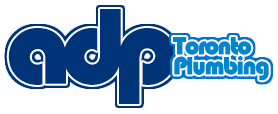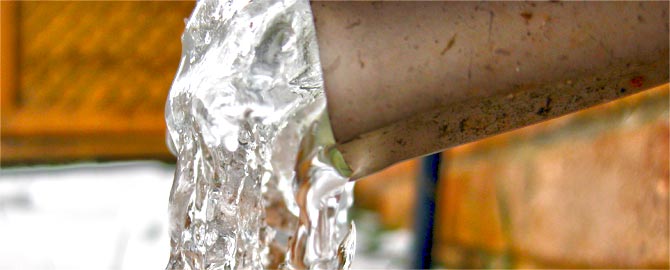Here’s our latest post on common plumbing questions. We try to address relevant issues, and nothing seems more relevant that preparation for the big freeze given that the Arctic seems to have arrived in Toronto. What’s more, we’re likely to get this kind of weather on and off for the next four to six weeks, so even if you haven’t done the necessary before today’s extreme cold alert, keep this information handy and apply it ahead of the next freeze.
Q1: Can my water pipes freeze?
A1: Yes, they can. Even in heated Toronto homes, you can get frozen water pipes. This is unlikely to occur with the hot water pipes, but many older freestanding homes still have cold water inlet pipes located on or against the exterior walls of the building. Basement plumbing and uninsulated pipes built with a wall or panel around them are particularly at risk of freezing, and the City gets up to 900 calls about frozen pipes from residents each time the temperatures drop down to around – 20 C.
Here’s what you can do to prevent this from happening:
- Undo the clamps and pull the pipes gently away from uninsulated wall surfaces. Wrap them with cheap insulation material.
- Leave one cold water tap partially open inside the house. This will keep the water flowing and help to prevent freezing in some cases.
- Open the cabinet doors around pipes in the kitchen, bathroom and laundry areas to let the warm indoor air circulate around the plumbing. It may look untidy but it beats having no water for a few days.
Q2: Do I really need to install a sump pump?
A2: Most Toronto homes have basements, and not a few of those have basement flooding problems. Having said that, it’s not a given that you need a sump pump. If your home is located on high ground or on a slope or your basement has an exterior entrance, chances are good you might not need one. The main reasons for needing to install a sump pump are a high water table coupled with a low-lying basement, proximity to municipal sewer lines in problem areas or ongoing drainage problems.
In many cases, a backwater valve will provide the protection you need without having to incur the expense of a pump. And if you do need one, Toronto has various subsidies and rebate programs you can apply for that will help with the cost. Check the City’s Basement Flooding Subsidy Program online for answers to your plumbing questions and financial information.
Q3: Why do my pipes make a noise during the night?
A3: Pipes can make all sorts of interesting sounds, and you are more likely to notice them at night when the home is quiet. Squeaking, banging, hammering and ticking are noises you hear at some point, particularly when the weather is very hot or very cold, which cause people to ask plumbing questions:
- Squeaking is the result of the expansion of the pipe caused by hot water passing through it, which makes it rub against its anchor straps.
- Banging is caused by water pressure, which makes pipes rattle and bump against each other and the walls whenever the water is turned on.
- Hammering is also caused by pressure but usually happens when the water is turned off and the pipe gives one mighty shake as it shuts down. This is worse if pipe anchors are loose because the pipes have a greater range of movement.
- A “ticking” sound may be caused by your water meter as it records your usage, although if this is located in the basement you’re unlikely to hear it upstairs at night.
Take the necessary precautions to protect your plumbing system during cold weather, and if you have these or other plumbing questions, contact your local plumber today for a consultation and an inspection. This will identify any issues that need attention and you can set your mind at rest that your residential plumbing is in ship shape.


Yeah, I do have the same opinion that hiring a unlicensed plumber is risky for our equipment & our life too. At home, plumbing system is the most important part among all other system. It should be on highest priority while homeowners are planning for maintenance and repair. Moreover, I like the way you describe the philosophy of home maintenance in a very simple manner.
Yeah, I do have the same opinion that hiring a unlicensed plumber is risky for our equipment & our life too. At home, plumbing system is the most important part among all other system. It should be on highest priority while homeowners are planning for maintenance and repair. Moreover, I like the way you describe the philosophy of home maintenance in a very simple manner.
Yeah, I do have the same opinion that hiring a unlicensed plumber is risky for our equipment & our life too. At home, plumbing system is the most important part among all other system. It should be on highest priority while homeowners are planning for maintenance and repair. Moreover, I like the way you describe the philosophy of home maintenance in a very simple manner.